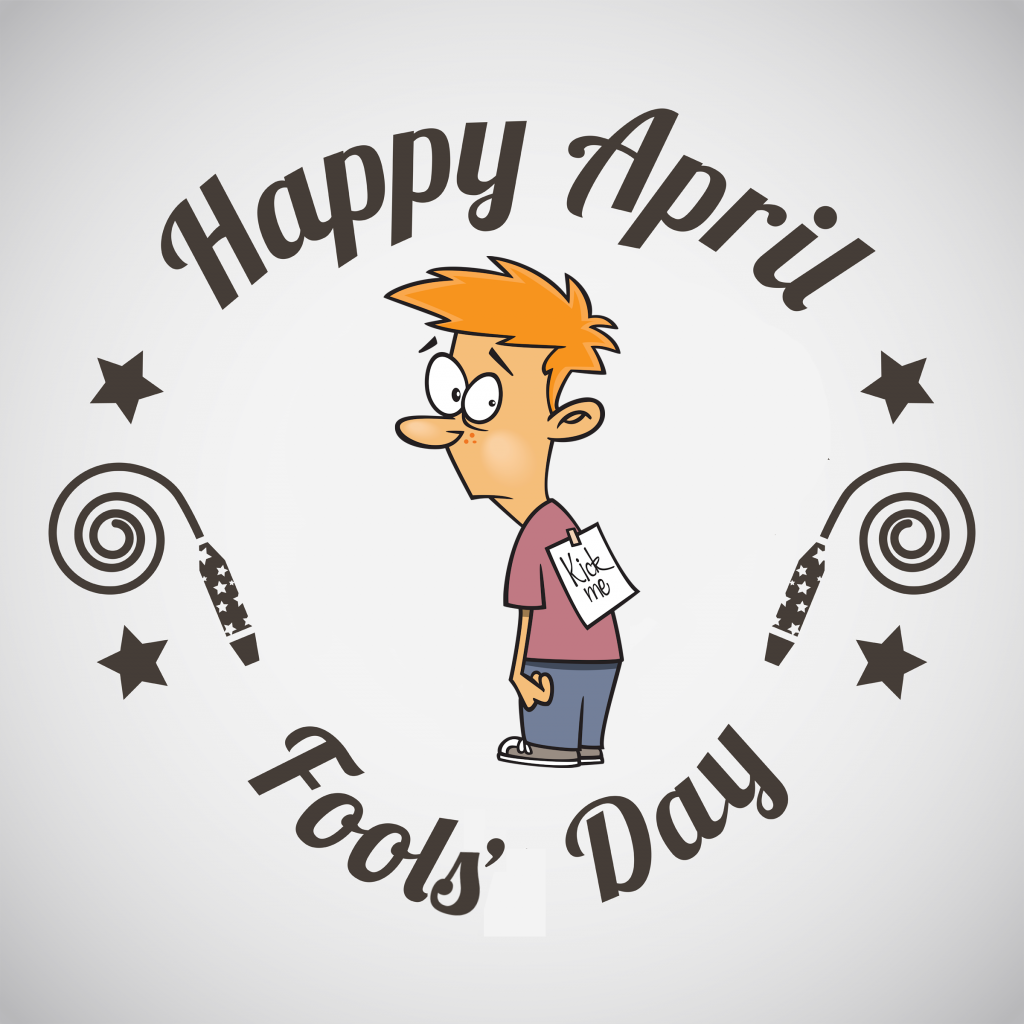Beware what you read today. I toyed with the thought of writing a completely fake story about some non-existent technological breakthrough like a sentient quantum computer; but, with so much fake news already available on a daily basis, I reconsidered and dismissed the idea. Others will undoubtedly maintain the tradition of trying to fool readers into believing a completely untrue story — only to reveal in the end it was all an April Fools’ joke. Have you ever wondered why a Fools’ Day even exists and why April 1 became the designated day for tricksters to unleash their pranks? It may have to do with Gregorian calendar. David Johnson and Shmuel Ross remind us, “Ancient cultures, including those of the Romans and Hindus, celebrated New Year’s Day on or around April 1. It closely follows the vernal equinox (March 20th or March 21st.) In medieval times, much of Europe celebrated March 25, the Feast of Annunciation, as the beginning of the new year.”[1] Since the reign of Julius Caesar, much of Europe had used the Julian calendar, which was named after the emperor. Caesar introduced his calendar following the recommendation of the Alexandrian astronomer Sosigenes, who knew the Egyptian solar calendar was much more accurate than the lunar calendar. The Julian calendar celebrated the New Year on April first.
“In 1582,” Johnson and Ross explain, “Pope Gregory XIII ordered a new calendar (the Gregorian Calendar) to replace the old Julian Calendar. The new calendar called for New Year’s Day to be celebrated Jan. 1. That year, France adopted the reformed calendar and shifted New Year’s day to Jan. 1.” According to the CNN staff, that change may mark the start of April foolery. “Some historians believe the April Fools’ customs began in France, although no one knows for sure. It may stem from a calendar change in 16th century France — the moving of New Year’s Day from April 1 to January 1 when the Gregorian calendar was adopted. People who continued to celebrate New Year’s Day on April 1st rather than the new date of January 1st were referred to as ‘April fools’ and others played tricks on them.”[2] Sounds like a reasonable explanation. The History.com staff agrees it is the most likely explanation, but adds, “Although April Fools’ Day, also called All Fools’ Day, has been celebrated for several centuries by different cultures, its exact origins remain a mystery.”[2]
Why were there Fools beyond France?
Johnson and Ross don’t dismiss the traditional story about why April first became April Fools’ Day; but, they do point out a few challenges with that explanation. They write, “There are at least two difficulties with this explanation. The first is that it doesn’t fully account for the spread of April Fools’ Day to other European countries. The Gregorian calendar was not adopted by England until 1752, for example, but April Fools’ Day was already well established there by that point. The second is that we have no direct historical evidence for this explanation, only conjecture, and that conjecture appears to have been made more recently.” The staff at Snopes proffers a few other possible explanations for the origins of the day. The staff writes, “The timing of this day of pranks seems to be related to the arrival of spring, when nature ‘fools’ mankind with fickle weather, according to the Encyclopedia of Religion and the Encyclopedia Britannica.” Another explanation, according to Snopes include, “The Country Diary of Garden Lore, which chronicles the goings-on in an English garden, says that April Fools’ Day ‘is thought to commemorate the fruitless mission of the rook (the European crow), who was sent out in search of land from Noah’s flood-encircled ark.’ Others theorize it may have something to do with the Vernal Equinox. Some think to tie in with … the end of the Celtic new year festival.”[4]
History.com speculates the tradition may go back to Roman times. It explains, “Historians have also linked April Fools’ Day to festivals such as Hilaria, which was celebrated in ancient Rome at the end of March and involved people dressing up in disguises.” I’m assuming that’s also the origin of the word hilarious — which is what many tricksters believe their pranks to be. The Snopes staff observes, “It has become tradition on the first of April to pull jokes of the harmless variety on those near and dear to us. We plot and we scheme, and often the yuks are funnier in our imaginings than how they play out in reality, but that doesn’t stop us from sending the little kid in us out on a rampage. Even the most staid among us have been known to indulge in a practical joke or two, so beware of trusting anyone on that day.”
Various April Fools’ Day Traditions
Regardless of how the April Fools’ Day tradition started, it has proven to have legs. “In France,” the CNN staff reports, “April 1st is called ‘Poisson d’Avril.’ French children fool their friends by taping a paper fish to their friends’ backs. When the ‘young fool’ discovers this trick, the prankster yells ‘Poisson d’Avril!’ In Scotland, April Fools’ lasts two days. Victims of pranks are called gowks (cuckoo birds). The second day is known as Taily Day, and pranks involving the backside are played. Supposedly, it is the origin of ‘kick me’ signs. In England and Canada, pranks are only played in the morning of April 1st.” In the United States, pranks are revealed with a hearty “April Fools!” Johnson and Ross add, “April Fools’ Day is observed throughout the Western world. Practices include sending someone on a ‘fool’s errand,’ looking for things that don’t exist; playing pranks; and trying to get people to believe ridiculous things.”
If you find yourself duped by an April Fools’ Day prank, don’t be too hard on yourself. A lot of very serious and smart people have found themselves in the same situation. Johnson and Ross tell the story of Joseph Boskin, a professor of history at Boston University. “He explained that the [April Fools’] practice began during the reign of Constantine, when a group of court jesters and fools told the Roman emperor that they could do a better job of running the empire. Constantine, amused, allowed a jester named Kugel to be king for one day. Kugel passed an edict calling for absurdity on that day, and the custom became an annual event. ‘In a way,’ explained Prof. Boskin, ‘it was a very serious day. In those times fools were really wise men. It was the role of jesters to put things in perspective with humor.’ This explanation was brought to the public’s attention in an Associated Press article printed by many newspapers in 1983. There was only one catch: Boskin made the whole thing up. It took a couple of weeks for the AP to realize that they’d been victims of an April Fools’ joke themselves.” Have fun today, but be wary of others.
Footnotes
[1] David Johnson and Shmuel Ross, “April Fools’ Day: Origin and History,” Infoplease,
[2] Staff, “April Fools’ Day Fast Facts,” CNN, 21 March 2019.
[3] Staff, “April Fools’ Day,” History.com, 30 March 2017
[4] Staff, “April Fools’ Day Origins,” Snopes.





